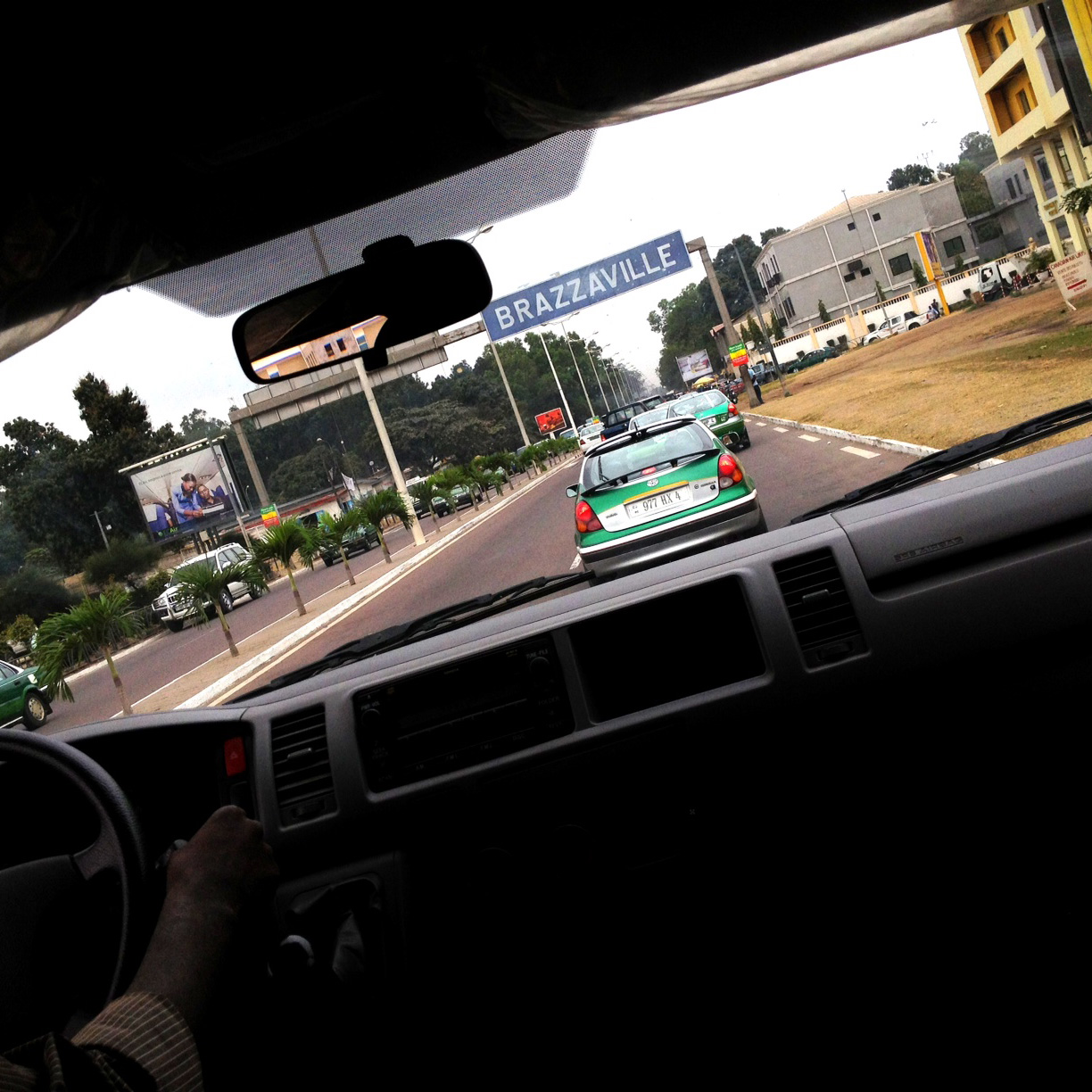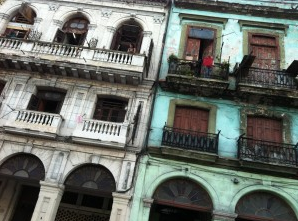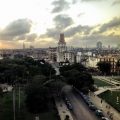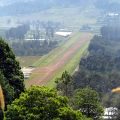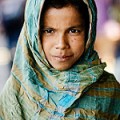Letter from Brazzaville

Brazzaville, the capital city of the Republic of Congo, has a spiffy new airport in the style of Paris or Madrid. Coming in on the RwandAir flight from Kigali, I’m shocked to see actual jet bridges where one can walk directly from the aircraft into the airport.
Dozens of times I’ve landed in random African airports, deplaned the aircraft and been bused to the terminal, even if it’s a short walk away and there are no other aircraft anywhere to be seen. As far as I can tell, the logic is, “Hey, we have these buses—we need to use them.”
Yet some things never change. The customs guy asks to see my wallet for an inspection of cash, then holds on to it, testing me. “You have something to give me?” he asks. I tell him I have my approved visa that has already been paid for, but he continues to look at me.
I stand my ground and leave without coughing up. A few feet away, a sign indicates the Republic of Congo’s latest anti-bribery campaign. “Together, we can defeat corruption,” it reads.
There is also a sign advertising a non-existent café. Great sign! Maybe one day the café will arrive too.
Thus I adjust to life in Africa again.
***
Before I left Portland I received various news on my so-called career. I have speaking invitations to India, Pakistan, Spain, and the Philippines. I’ll be writing another book and starting a new business project soon. I like all of these things, but their collective accumulation also leaves me feeling vaguely discontented.
During one of these career calls I sit on a bench in Pioneer Square, discussing the business terms of one of the projects. I hang up the phone and walk two blocks before encountering a panhandler, who asks if I can spare any change.
“Sorry, I can’t help,” I reply out of habit.
I consider the irony of this moment: I have everything I could hope for, yet I’m unable or unwilling to share. I feel guilty and unsettled.
***
I watch a Jason Mraz video from VH1 Storytellers (not viewable in all regions, sorry) where he tells the story of the song I Won’t Give Up. In the video, he talks about melancholy. “Just because you have everything,” he says, “doesn’t mean you won’t experience melancholy.”
Last year I wrote about the ending of a show, how actors experience a feeling of sadness when something they have known for a long time is going away. I’ve thought of this model in conjunction with the upcoming end of my quest to visit every country. If all goes well, in just under nine months I’ll have been to all 193 countries. With the successful arrival in Congo, I’m down to seven countries left.
Apparently it’s not all bad news. Another reader writes in to share more on the ending of theatre shows:
I am a music director for musical theatre productions, and most of the gigs I’ve done have been away from home for anytime between two weeks and two months. Usually, most people on the gig are also away from home, and so we all become really close, and as cliché as it sounds, become a “family.” That means that’s there’s a lot of good and a lot of tough. So we’re all ready for it to be done, and at the same time all feel sad once it’s done.
What I would like to add, though, is that there is usually a sense of relief that happens at the same time as the sad part. The first few days back, the body is back but the head is still away.
That’s why I’ve found that it’s best to take some time off immediately after and not jump back on the next big project immediately, if possible. Soon after that those couple of transition days a sense of nostalgia shows up that is actually nice; I don’t know that the word nostalgia is perfect, but it’s stronger than just memories because of its length in time.
I liked this alternate perspective, and I’m looking forward to the positive aspects of change over the next year.
But just because things are amazing doesn’t mean you won’t experience melancholy.
I feel like it’s unfolding in front of me but I don’t know how to stop it.
***
Before I came to Central Africa, I traveled through Los Angeles and New York. I left home without a passport, in hopes that my visa application for the Republic of Congo would come through just in time.
The active traveler’s law of visa applications states that however many days you allow for an application is exactly how many days it will take. Time and time again I have dutifully sent off my passport and application to various embassies in Washington, D.C. The response usually arrives exactly when I need it—but never a day before.
This time I end up frantically phoning my visa service every day during the final week before shipping out. I finally have to get on the plane and leave home without a passport, hoping it will now arrive at my hotel just hours before the international flight.
By some miracle, this is exactly what happens; the passport arrives at my New York hotel via FedEx Priority Overnight service with hours to spare.
I ride in the back of the car that takes me to JFK Terminal 4. I check-in at the Etihad counter and successfully resist the agent’s attempt to weight my carry-on. Nothing to see here, folks.
Fellow travelers, whether encountering a rogue customs official in the Congo or an overzealous Business Class check-in agent, stand your ground! Take the small victories where they come and appreciate what you have.
I sit in the lounge and answer emails. At 10pm I head to the gate and board the flight. It’s 13 hours to Abu Dhabi, and then a two-hour car transfer to Dubai. I’m in Dubai for a day before heading here to Brazzaville, where I set up shop and seek to explore the market in search of signs of life and a replacement outlet adaptor.
I’m not sure what the answers are to these vague, first-world problems of discontent. All I know is, the time has come to see the world again.
Thus I travel, since that’s what a traveler does. Onwards.
###
